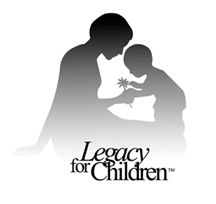 The
early years of a child's life are crucial for cognitive, social and emotional
development. Therefore, it is important that we take every step necessary
to ensure that children grow up in environments where their social, emotional
and educational needs are met.
The
early years of a child's life are crucial for cognitive, social and emotional
development. Therefore, it is important that we take every step necessary
to ensure that children grow up in environments where their social, emotional
and educational needs are met.
Cost to society of less than optimal development are
enormous and far-reaching. Children who grow up in environments where their
developmental needs are not met are at an increased risk for compromised health
and safety, and learning and developmental delays. Failure to invest time and
resources during children’s early years may have long term effects on the
foster care, health care, and education systems. Therefore, it is in the
public's interest to ensure that children develop in safe, loving, and secure
environments.
Overview
What is Child Development?
Children grow, develop, and learn throughout their lives from birth
and infancy to adulthood. A child’s development can be measured through
social, physical, and cognitive developmental milestones. If children fail
to develop properly they may be unable to reach their full potential.
However, healthcare professionals and parents can work together as partners to
help children grow up healthy and strong.
Why be concerned if a baby shows signs of developmental delay?
Won’t she just grow out of it?
Developmental delays can have future negative effects on your child, which
may lead to speech and language difficulties, behavioral problems and
learning problems.
How can I prevent developmental delay in my baby?
There isn’t one “right way” to prevent developmental delay. Consult a
pediatrician for specific activities for your child. Some activities such
as singing and reading to your child help to stimulate cognition and
recognition of a mother’s voice by her child.
What is early childhood intervention?
The intent of early child intervention is to lay a foundation, in
conjunction with the family, to support infants as they grow and mature
into healthy individuals. Healthy means the best possible outcome the
physical, mental, and social functioning and well-being of an individual.
I have concerns that my child could have a developmental delay. Whom do I
contact to get my child a developmental assessment in my state?
Consult your pediatrician if you have concerns about your child’s
development. An additional resource,
the National Early Childhood
Technical Assistance Center, lists early intervention programs by state.
It is important to remember, however, that there is a range of what is
considered normal development. Some babies may accomplish certain tasks or
reach a specific developmental milestone sooner or later than others.
How is CDC working to improve child developmental outcomes?
The Centers for Disease Control and Prevention is committed to promoting
optimal child health outcomes by preventing developmental delay and
disabilities. Following is a description of our current programs.
Legacy for
Children™
 Legacy for
Children™ is a parenting intervention and research project that
seeks to learn how to help children develop into happy, successful, and
healthy individuals. Research shows that children are more likely to
overcome challenges and obstacles when their parents are involved and
committed to providing a safe, strong base of support. Through weekly group
meetings, Legacy for Children™ aims to enhance the mother/child
relationship by helping mothers to realize the importance of establishing a
nurturing and responsive relationship with their child. The focus of group
meetings is to foster each mother’s sense of parental responsibility and
feelings of competency as a parent.
Legacy for
Children™ is a parenting intervention and research project that
seeks to learn how to help children develop into happy, successful, and
healthy individuals. Research shows that children are more likely to
overcome challenges and obstacles when their parents are involved and
committed to providing a safe, strong base of support. Through weekly group
meetings, Legacy for Children™ aims to enhance the mother/child
relationship by helping mothers to realize the importance of establishing a
nurturing and responsive relationship with their child. The focus of group
meetings is to foster each mother’s sense of parental responsibility and
feelings of competency as a parent.
The program is currently being implemented
at the University of California, Los Angeles and at the University of
Miami. For more information about Legacy for Children™, please click
on the tab above.